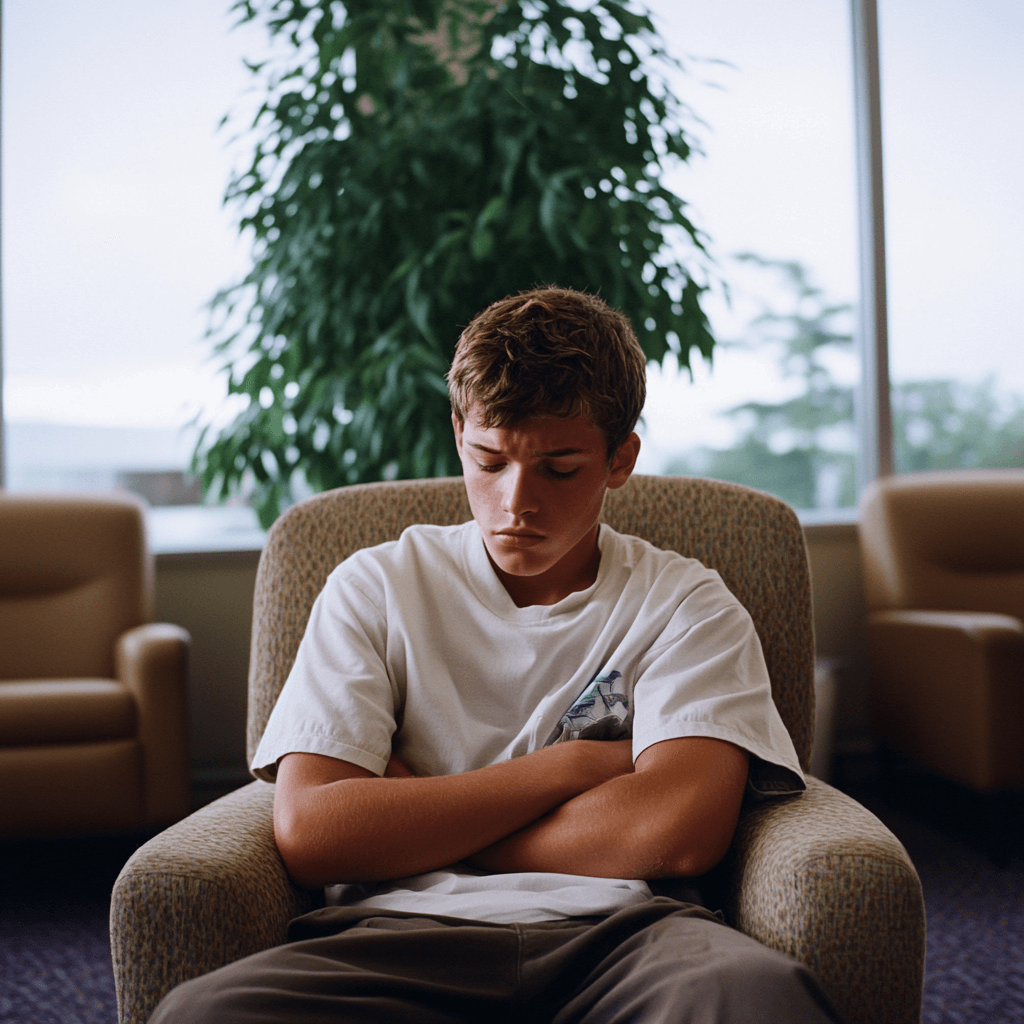Why do addicts relapse? Relapse is normal during recovery but understanding why is very helpful for its prevention. Stress, environmental factors, and emotional struggles can all contribute to relapse. Understanding why addicts relapse will help you support them through recovery. Exploring these reasons reveals the complexity of addiction and the need for broad support systems.
Whether you’re fighting your own addiction or you’re supporting someone else who has one, understanding these underlying reasons for relapses can help you or someone you care about stay sober permanently.
Skip to:
Why Do Drug Addicts Relapse: Common Reasons
Relapse is often caused by a combination of emotional and environmental factors that sabotage progress. Emotional triggers like stress, anxiety, and depression may revert people to substance use as coping mechanisms. Relapse may also be triggered by environmental factors such as familiar places or people associated with past substance use. Overconfidence in recovery also makes people underestimate their vulnerability and puts them in dangerous situations. Lack of support, untreated dual diagnosis, and other situations may affect recovery, too. Recognizing these triggers and addressing them is an important step to sobriety.
- Emotional triggers
- Environmental triggers
- Overconfidence in recovery
- Lack of proper support
- Untreated Dual Diagnosis
- Specific situations
- Celebratory triggers
- Emotional highs
Emotional Triggers
Relapse is mainly caused by emotional triggers for the majority of addicts. Stress, anxiety, and depression can consume people and prevent them from staying sober. Trauma and emotional pain that remains may resurface and cause substance use as a form of coping. Managing these emotional issues is a step to recovery, and it involves therapy and counseling. Emotional health influences recovery outcomes. A stable emotional state reduces relapse risk and supports long-term sobriety.

Untreated emotional health issues are associated with increased relapse risk. For example, untreated trauma may drive substance use to numb emotional discomfort. Stress and anxiety may also cause relapse because people use substances to cope. Understanding the impact of emotional health on recovery can help you support a loved one more effectively. Encouraging professional help, such as therapy, can provide the necessary tools to deal with emotional triggers and maintain sobriety.
Environmental Triggers
Environmental triggers may influence recovery and increase relapse risk. Returning to places of substance abuse may trigger strong memories and cravings. Even seeing certain streets can trigger a desire to use substances again. Friends and acquaintances who use substances may also encourage relapse. They are difficult to resist in their presence and behavior—especially early in recovery.
It’s important to build a supportive and sober environment to counteract these influences. That means finding people who support you in sobriety and engaging in new, healthy activities. A lack of a supportive sober environment may make recovery difficult to maintain. People might be feeling alone and more likely to relapse without a good support system.

Overconfidence in Recovery
Overconfidence in recovery is one potential obstacle. A false sense of control may result from underestimating addiction. Many believe they are “cured” and can manage occasional use without falling back into old patterns. Such a mindset causes relapse. Addiction is a medical condition that requires ongoing support and monitoring. Remember that recovery is a process, not a destination. Long-term sobriety may benefit from regular check-ins with a therapist and participation in support groups.
Get Help. Get Better. Get Your Life Back.
Searching for Accredited Drug and Alcohol Rehab Centers Near You? We Level Up Texas Is Opening Soon!
Even if you have failed previously and relapsed, or are in the middle of a difficult crisis, we stand ready to support you. Our trusted behavioral health specialists will not give up on you. When you feel ready or just want someone to speak to about therapy alternatives to change your life call us. Even if we cannot assist you, we will lead you to wherever you can get support. There is no obligation. Call our network hotline today.
FREE Addiction Hotline – Call 24/7Lack of Proper Support
Lacking support can greatly impact recovery. Insufficient family and community support may make people feel isolated and misunderstood. Family members might not be motivated to help the addict resume their recovery if they have no understanding of addiction. Community support is equally important. Connecting with people who understand recovery can be transformative. Support groups are places to talk about experiences and encourage one another.
Therapy and support groups are important to recovery. Professional therapy develops strategies for coping with triggers and emotions. Support groups create belonging and accountability. Regular participation in these groups improves recovery outcomes.

Untreated Dual Diagnosis
Untreated dual diagnosis involving addiction alongside mental health disorders presents particular challenges. People with conditions including depression, anxiety, or bipolar disorder report their mental health issues escalating their substance use and vice versa. Relapse may occur when treating addiction alone without managing these co-occurring disorders. The best choice for a full recovery is undergoing a dual diagnosis treatment in Texas, because integrated treatment strategies result in better outcomes, lower relapse risk, and long-term sobriety.
Specific Situations: Why Do Addicts Relapse When Things Are Good?
Why do addicts relapse when things are good? Specific situations, like experiencing positive life changes, can ironically lead to relapse. When things are going well, a sense of complacency can set in. You might think your sobrietу is no longer in jeopardy and drop your guard. This false security can make you more likely to relapse. It is easy to forget the struggles of addiction in good times, but be vigilant. The euphoria and decreased stress during these periods can fool the brain into thinking it is safe to use again. Life feels manageable but long-term recovery requires ongoing support and self-alertness.

Celebratory Triggers
Celebratory triggers can lead to relapse as using substances often becomes a way to celebrate. At festive events, social pressure might make it hard to resist a drink or drug—especially when others are doing it too. Celebrations can make joining in too tempting. Strategies for dealing with such situations include having a plan or going to events with someone sober.

Get Your Life Back
Find Hope & Recovery. Get Safe Comfortable Detox, Addiction Rehab & Dual Diagnosis High-Quality Care.
FREE Addiction Hotline – Call 24/7Why Does an Addict Relapse: Emotional Highs
Emotional highs such as positive life events and achievements may also cause relapse. Handling those highs sober means learning new ways to celebrate life without substances. Positive emotions can give you a false sense of safety that you can handle just one drink or use. That is why you need to develop healthy coping strategies for such situations. You need to find satisfaction in sober activities and learn how to celebrate your achievements without substances. Learning to manage all emotions, even good ones, is crucial for long-term recovery. Accept your success and enjoy life without compromising sobriety.

Strategies to Prevent Relapse
Why does an addict relapse? In USA, 48.7 million adults (12 years of age or older) in 2022 reported having a substance use disorder (SUD) in the previous year. Approximately 75% of drug overdose deaths were caused by the inappropriate use of opioids. Texas, Florida, Pennsylvania, Ohio, and California were the states with the highest number of drug overdose deaths in 2020 – an estimated 9,538, which emphasizes the importance of ongoing assistance. Developing coping mechanisms and regular therapy may prevent relapse. Here are some effective methods:
- Mindfulness practices: Techniques like meditation help with stress and staying present.
- Regular exercise: Physical activity reduces anxiety and improves mood.
- Engaging in hobbies: Fulfilling activities keep cravings away.
- Therapy sessions: Addressing addiction triggers through regular counseling.
- Cognitive-behavioral therapy (CBT): Effective in changing negative thought processes.
- Family therapy: Involves loved ones in the recovery process, fostering a supportive environment.
- Support groups: Offer community support and encouragement.
- Healthy coping strategies: Techniques for managing stress and emotions.
- Continuous monitoring: Check-ins with the therapist periodically to adjust strategies.
Opening Soon! First-Class Facilities & Amenities
World-Class High-Quality Addiction & Mental Health Rehabilitation Treatment
Coming Soon! Rehab Centers TourRenowned Addiction Centers. Serene Private Facilities. Inpatient Rehab Programs Vary.
FREE Addiction Hotline – Call 24/7Proven recovery success experience, backed by a Team with History of:
15+
Years of Unified Experience
100s
5-Star Reviews Across Our Centers
10K
Recovery Success Stories Across Our Network
- Low Patient to Therapist Ratio
- Onsite Medical Detox Center
- Comprehensive Dual-Diagnosis Treatment
- Complimentary Family & Alumni Programs
- Coaching, Recovery & Personal Development Events
Creating a Supportive Environment
For long-term recovery, the environment must be helpful and supportive. Having sober friends and family members can be the motivator and encouragement to stay on track. Those who are aware of your sober objectives may help you in preventing relapse. Joining one of the Texas support groups for families of addicts gives you advice and emotional support from others going through the same thing. These groups may provide strength during tough times.
A safe and stable living situation is also necessary. Do not keep triggers and stressors in your home environment, as that might interfere with your recovery. This may involve avoiding places or people associated with prior substance use. People in supportive environments recover better. Remember that creating a safe place and having a support network will help you remain sober.

Ongoing Treatment and Monitoring
Sobriety demands ongoing treatment and monitoring. Continued participation in treatment programs at a reliable drug and alcohol rehab in Texas gives you the support and resources to cope with daily challenges. Regular check-ins with counselors or support groups keep you accountable and allow you to talk through issues. These sessions may help adjust treatment plans as needed. Consistent engagement in aftercare programs reduces relapse rates. Continuing therapy can help you build on your recovery and start a life free of drugs. Don’t hesitate to contact us for more information and support.
Why Do Drug Addicts Relapse and When to Seek Help?
Why do addicts relapse and how can it be prevented? Relapse is often related to emotional triggers, environment, and overconfidence in recovery. Recognizing these common helps with creating effective prevention strategies. Continuous support, coping strategies, and regular therapy at one of the addiction treatment center in Texas contribute to sobriety.
If you or a loved one is struggling, remember that relapse is a part of the recovery journey for many. Be proactive, get help, and stay committed to recovering. Prevent relapse and find support at We Level Up Texas to start building a new life!
Start a New Life
Begin with a free call to an addiction & behavioral health treatment advisor. Learn more about our dual-diagnosis programs. The We Level Up treatment center network delivers recovery programs that vary by each treatment facility. Call to learn more.
- Personalized Care
- Caring Accountable Staff
- World-class Amenities
- Licensed & Accredited
- Renowned w/ 100s 5-Star Reviews
We’ll Call You
Search We Level Up Texas for Relapse Topics & Resources
Sources:
Cooper, M., Gyawali, S., Smith, T. and Yan, J. (2022). Key Substance Use and Mental Health Indicators in the United States: Results from the 2022 National Survey on Drug Use and Health. [online] Available at: https://www.samhsa.gov/data/sites/default/files/reports/rpt42731/2022-nsduh-nnr.pdf.
www.aafp.org. (n.d.). Drug Overdose Deaths Reached New High in 2020, Says CDC. [online] Available at: https://www.aafp.org/news/health-of-the-public/20210806overdosedeaths.html.





